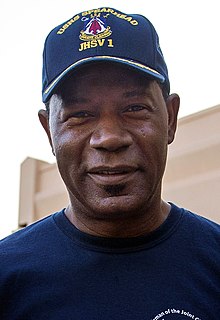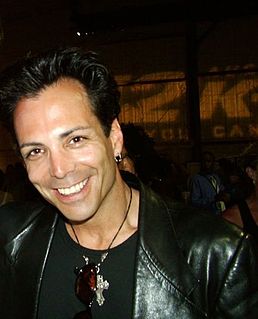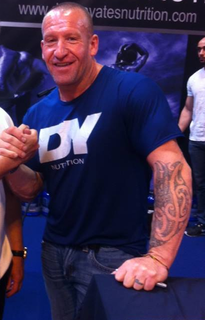A Quote by Dennis Haysbert
No matter what you set out to do and how you set out to do it, you ultimately have to be who you are, and who you are as that character. So, I paid as much homage as I could to what Michael Clarke did, and had to rely on my own gifts to guide me through it.
Related Quotes
I definitely wanted to pay homage to what he did and use his performance in the first one as a foundation. But, I had to make it my own. I couldn't sit there and try to imitate Michael Clarke Duncan. I think that would have been disastrous. I had to make it my own. I tried to take as many nuances that he had with the character and utilize them as best I could, while creating a character that was unique to me. That's going to happen, no matter what.
One set at extreme intensity does the muscle-building job. It must be stressed that the one final, all-out set I do takes me to the very limit of my capabilities. If you feel you can attempt a second set, then you couldn’t have been pulling out all the stops during the first set. It's not pretty, but it works.
Every actor has their own process. For me, I really need to stay in the pocket. So, if I'm on set and I'm in character, I'm not thinking like a producer. If I'm on set and I'm not in character, wardrobe and make-up, and I'm just coming on set for the moments that I'm not shooting, then I'm able to be the producer.
I remember that Michael Werner told me about a famous collector, and Michael set up an appointment for us to meet. This man looked around the room and at my pictures. Then he said, "Young man, why are you doing these horrible things? Look out the window. There are nice girls out there. It's springtime. Look at how beautiful the world can be. You'll ruin your health by smoking so much and doing such tortured things."
I think at some level, it's just alchemy that we, as writers, can't explain when we write the characters. I don't set out to create the characters - they're not, to me, collections of quirks that I can put together. I discover the characters, instead. I usually go through a standard set of interview questions with the character in the beginning and ask the vital stuff: What's important to you? What do you love? Hate? Fear? .. and then I know where to start. But the characters just grow on their own, at a certain point. And start surprising me.
At one point, I recognized that Warren Buffett, though he had every advantage in learning from Ben Graham, did not copy Ben Graham but, rather, set out on his own path and ran money his way, by his own rules... I also immediately internalized the idea that no school could teach someone how to be a great investor.



































